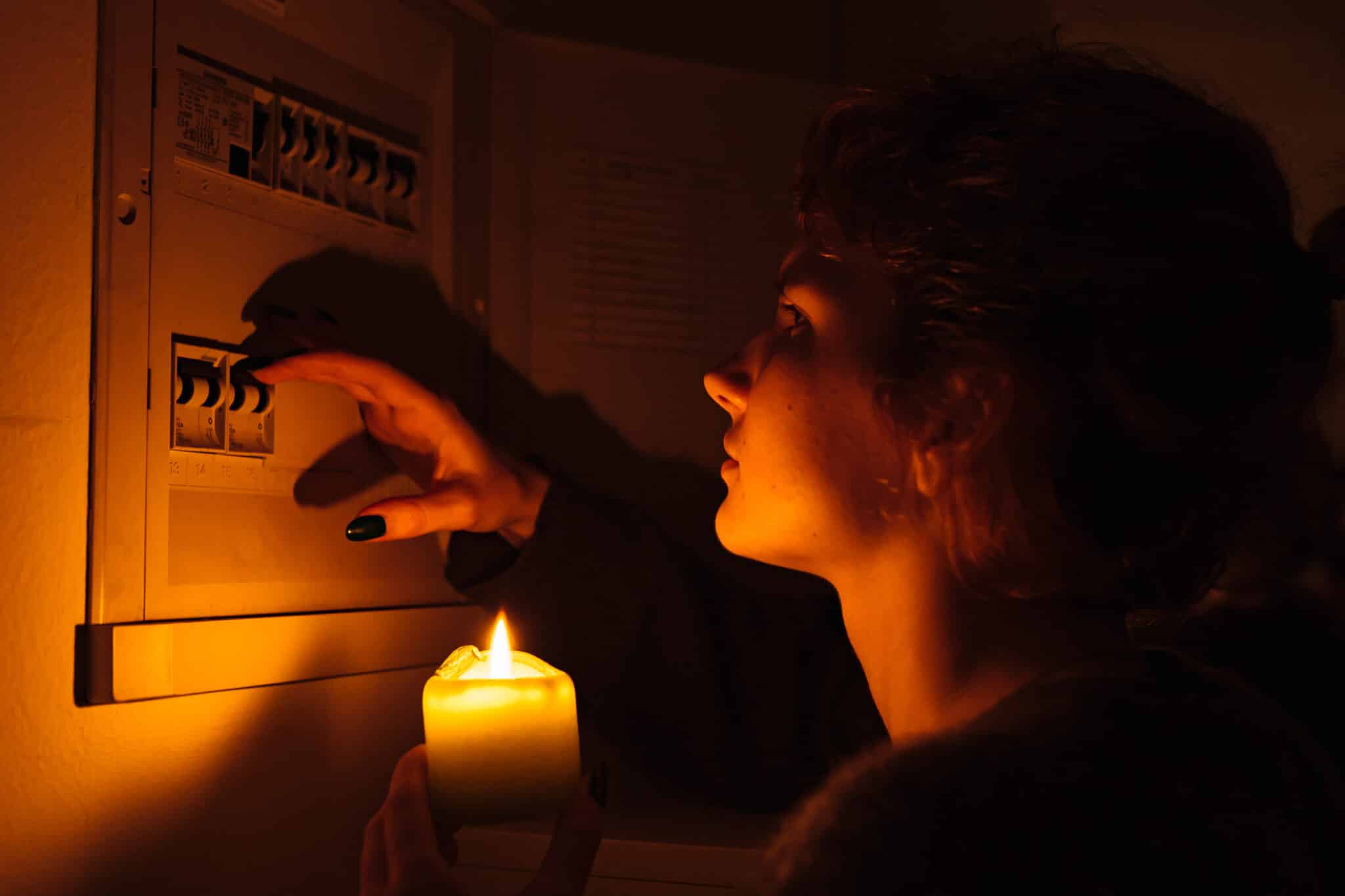Backup Generators – Have you ever been stuck in the middle of a power outage, wondering how long it will last? In South Carolina, power outages aren’t just a rare occurrence – they can happen often, especially during storms or extreme weather. That’s why backup generators are becoming a must-have for many homeowners.
With a backup generator, you don’t have to worry about your lights going out or your fridge full of food spoiling. Let’s dive into why having a backup generator is essential for homes in places like Columbia, West Columbia, Lexington, and Irmo.
Understanding Backup Generators
What is a Backup Generator?
A backup generator is a machine designed to supply electricity to your home when the main power grid goes down. These devices are often powered by fuel sources like natural gas, propane, or diesel and are typically installed outside your home, similar to an air conditioning unit.
Once installed, they provide a seamless transition from grid power to backup power when needed, ensuring that your essential systems like heating, cooling, and kitchen appliances keep working.
For homeowners in South Carolina, where storms and outages are common, having a backup generator ensures that you are prepared for any power loss, no matter how long it lasts. It’s a reliable investment that protects your home and keeps life as normal as possible during emergencies.
How Do Backup Generators Work?
Backup generators are designed to activate automatically the moment they detect a power outage in your home. Once the main power supply is interrupted, the generator switches on and begins to send power directly to your home’s electrical system through a transfer switch.
This process happens almost instantly, minimizing any downtime between the loss of grid power and the generator kicking in. These systems can be programmed to power specific parts of your home or the entire house, depending on the type of generator and its capacity.
In South Carolina, where weather-related outages are frequent, the quick activation of a backup generator ensures that you don’t have to worry about being left in the dark or losing access to essential appliances.

Common Causes of Power Outages in South Carolina
Power outages in South Carolina can occur for various reasons, and understanding the common causes can help you see why a backup generator is so important.
From severe storms to equipment failures, these outages can disrupt your daily life and leave you unprepared without backup power.
Severe Weather Conditions
Severe weather is one of the leading causes of power outages in South Carolina. Hurricanes, thunderstorms, and even ice storms can damage power lines and transformers, cutting off electricity to entire neighborhoods.
High winds can knock down trees onto power lines, while heavy rainfall and flooding can cause equipment damage. In areas like Lexington, West Columbia, and Irmo, storms are a frequent occurrence, especially during hurricane season.
When extreme weather hits, it can take hours or even days for utility companies to restore power. Having a backup generator ensures that you can keep your home powered, safe, and comfortable during these times.
Equipment Failures
Sometimes, power outages occur because of equipment failures within the electrical grid itself. Aging infrastructure, overloaded systems, or simple malfunctions can cause unexpected blackouts.
These failures can happen without warning and may take longer to fix than weather-related outages because they often require specialized repairs or parts. For homeowners in Columbia and other parts of South Carolina, equipment failures are an unpredictable but real threat to your power supply.
A backup generator is your best defense against these types of outages, as it will kick in automatically when the power goes down, keeping your home running smoothly until repairs are made.
Wildlife Interference
Believe it or not, wildlife is another common cause of power outages in South Carolina. Squirrels, birds, and other animals can come into contact with power lines or electrical equipment, leading to short circuits and outages.
While these events are usually isolated and affect smaller areas, they can still be a major inconvenience. In some cases, wildlife interference can damage transformers or other equipment, resulting in longer restoration times.
Having a backup generator ensures that your home continues to receive power, even when unexpected wildlife encounters lead to a power failure in your area.
The Benefits of Having a Backup Generator
Having a backup generator offers numerous advantages, especially for homeowners in South Carolina who frequently face power outages. From keeping essential appliances running to ensuring your home stays secure, the benefits are undeniable.
Continuous Power Supply
One of the biggest benefits of a backup generator is the ability to maintain a continuous power supply during an outage. Whether you lose power for a few hours or several days, a generator ensures that your home’s essential systems keep running smoothly.
This is particularly important during severe weather events, which can cause widespread power outages across areas like West Columbia, Lexington, and Irmo.
With a generator in place, you won’t have to worry about sitting in the dark or losing access to important devices. Your lights, refrigerator, heating, and cooling systems will all keep functioning, giving you peace of mind and comfort.
Protection for Essential Appliances
A backup generator also protects your essential appliances from damage caused by sudden power outages. When the power goes out unexpectedly, it can cause surges or interruptions that harm sensitive electronics like refrigerators, freezers, and medical devices.
These appliances are often expensive to repair or replace, making power protection critical. In homes across South Carolina, backup generators ensure that your most important devices stay powered and protected, even during long outages. You won’t have to worry about spoiled food or damaged electronics, saving you both time and money.
Safety and Security
Another key benefit of having a backup generator is the added layer of safety and security it provides for your home. When the power goes out, security systems, cameras, and even basic lighting may fail, leaving your home vulnerable.
A generator ensures that your security systems remain active, keeping your property safe during blackouts. In addition to security, a backup generator can keep essential medical equipment running, providing critical support for those with health conditions.
Whether it’s safety from intruders or maintaining a comfortable environment for family members, a generator offers protection when you need it most.
Types of Backup Generators
When it comes to choosing a backup generator, it’s essential to understand the different types available and how they can fit your needs.
Each type of generator offers unique features, and selecting the right one can make all the difference during a power outage in South Carolina.
Standby Generators
Standby generators are permanently installed units that automatically turn on when the power goes out. These generators are usually connected to your home’s electrical system and a fuel source like natural gas or propane.
Once the power is lost, the generator starts up within seconds, ensuring minimal disruption to your home. Standby generators are ideal for homeowners who want a reliable, hands-free solution to power outages.
In areas like Columbia and Lexington, where storms and power failures are common, a standby generator is a great investment for keeping your home fully powered without any effort on your part.
Inverter Generators
Inverter generators are portable units that are known for their efficiency and quiet operation. Unlike traditional generators, inverter models produce clean energy, making them safer for sensitive electronics like computers and smartphones.
These generators are smaller and lighter, making them easy to transport and store when not in use. While inverter generators might not be able to power your entire home, they are great for essential devices during short outages or for specific tasks.
If you live in a place like Irmo and are looking for a flexible, portable power solution, an inverter generator might be the perfect fit.
Whole-Home Generators
For those looking to power their entire house during an outage, a whole-home generator is the ultimate solution. These generators are powerful enough to run everything in your home, from the air conditioning to major appliances, all at the same time.
Whole-home generators are often fueled by natural gas or propane and are connected directly to your home’s electrical panel, offering a seamless switch from grid power to backup power.
In South Carolina, where extended outages can be common, whole-home generators offer peace of mind by keeping everything in your home running smoothly without any interruptions.
How to Choose the Right Backup Generator
Choosing the right backup generator for your home can feel overwhelming, especially with so many options on the market.
By considering your specific power needs and key factors, you can find the generator that’s the best fit for your home in South Carolina.
Assessing Your Power Needs
The first step in choosing a backup generator is assessing how much power your home will need during an outage. Consider which appliances and systems are most important to keep running, such as your refrigerator, HVAC system, lights, and any medical equipment.
Some homes may only need a generator to power a few essential devices, while others may want to keep the entire house running. Understanding your power requirements will help you decide whether a smaller, portable generator will suffice or if you need a larger standby or whole-home generator.
In South Carolina, where outages can last for days, many homeowners opt for larger generators to ensure their entire home remains operational.
Factors to Consider
When selecting a backup generator, there are several factors to keep in mind. One of the most important is fuel type. Generators typically run on natural gas, propane, or diesel, so you’ll need to choose a model that aligns with the fuel options available to you.
You’ll also want to consider the generator’s capacity, which is measured in watts, to ensure it can handle the power load of your home. Noise level is another important factor, especially if you live in a quieter neighborhood like Irmo or Lexington, where a loud generator might be disruptive.
Finally, think about whether you prefer a portable or permanently installed generator. Each factor plays a role in determining which type of generator is right for your home.
Installation Process of Backup Generators
Once you’ve chosen the right backup generator for your home, the next step is installation.
Proper installation is crucial to ensure your generator works efficiently and safely, especially during extended power outages in South Carolina.
Importance of Professional Installation
While it may be tempting to try and install a generator yourself, professional installation is always the safest option. A licensed electrician or technician will make sure your generator is properly connected to your home’s electrical system, ensuring it automatically powers up when the electricity goes out.
They will also handle the connection to your fuel source, whether it’s natural gas, propane, or diesel, ensuring everything meets local codes and safety standards. In places like Columbia and West Columbia, where weather-related outages are common, professional installation ensures that your generator is ready to go when you need it most.
Improper installation can lead to dangerous situations, such as electrical fires or generator malfunctions, so it’s worth the investment to have it done right.
Maintenance Requirements
After your generator is installed, regular maintenance is key to keeping it in good working condition. Backup generators require periodic inspections to ensure that the fuel lines, electrical connections, and mechanical parts are all functioning correctly.
This typically includes oil changes, air filter replacements, and checking for any signs of wear and tear. Most manufacturers recommend servicing your generator once or twice a year, depending on how often it’s used.
In South Carolina, where power outages can occur unexpectedly, routine maintenance ensures that your generator will always be ready to perform when needed. A well-maintained generator can last for many years, providing you with reliable power when you need it most.
Common Misconceptions about Backup Generators
Backup generators are incredibly useful, but there are a few misconceptions that might make homeowners hesitant to invest in one. Let’s clear up some of the most common myths about these powerful devices.
“Backup Generators Are Too Noisy”
One of the biggest misconceptions about backup generators is that they are incredibly loud and disruptive. While older models may have been noisier, modern generators are designed with noise reduction in mind.
Standby generators, in particular, operate quietly, often comparable to the sound of an air conditioning unit. For those living in quiet neighborhoods like Irmo or Lexington, this is great news.
Inverter generators are even quieter, making them a good choice if you’re looking for a portable option that won’t disturb your surroundings. So, if noise has been a concern, rest assured that today’s generators are far quieter than you might expect.
“Only Businesses Need Backup Generators”
Another common myth is that backup generators are only necessary for businesses or commercial properties. While it’s true that many businesses rely on them to avoid downtime, backup generators are just as essential for homes.
In South Carolina, where power outages are a frequent issue due to storms, having a backup generator can protect your home from the inconvenience and potential damage of being without electricity for hours or even days.
Whether it’s keeping your food from spoiling, running vital medical equipment, or simply staying comfortable, residential backup generators provide valuable peace of mind for homeowners. No matter the size of your home, a generator can be a smart investment.
Stay Powered Through Any Outage with Mister Sparky of Columbia!
Don’t wait for the next big storm to leave you without power! Protect your home in Columbia, West Columbia, Lexington, and Irmo with reliable backup generators from Mister Sparky of Columbia.
Our team of experts can help you select, install, and maintain the best backup generators for your specific needs.
Ensure your home stays powered, your appliances stay safe, and your family remains comfortable. Ready to install your backup generators? Contact us today!

FAQs
How long can backup generators run?
Most backup generators can run as long as they have a steady fuel supply. Generators connected to natural gas lines can run indefinitely, while those using propane or diesel are limited by the amount of fuel available. It’s important to monitor fuel levels during longer outages to ensure the generator keeps running.
Are backup generators safe?
Yes, backup generators are safe when installed and maintained properly. Make sure they are placed outside to prevent carbon monoxide poisoning and that the installation follows local codes. Regular maintenance will ensure your generator is safe and reliable during emergencies.
Do I need a permit to install a backup generator?
In most cases, a permit is required to install backup generators, especially for standby models. Local regulations in places like West Columbia or Lexington may require an inspection to ensure the installation meets safety codes. Always check with your local authorities before installation.
Can I use a backup generator during a storm?
Yes, backup generators are built to be used during storms and other emergency situations. They are designed to automatically kick in when the power goes out. This makes them perfect for South Carolina’s storm-prone areas, keeping your home powered through extreme weather.
How often should I service my backup generator?
It’s recommended to service your backup generator at least once a year. This includes oil changes, filter checks, and a general inspection. Regular maintenance ensures that your generator will be ready to go whenever you need it.




